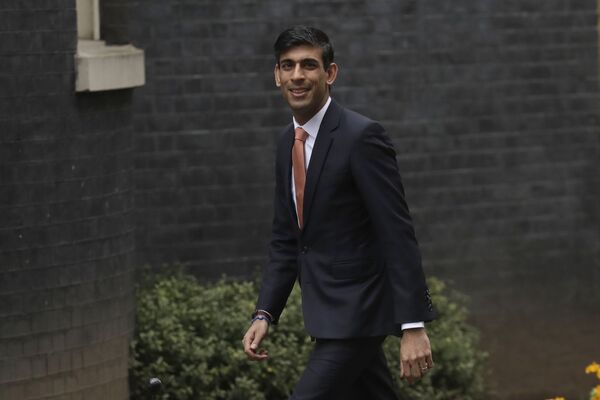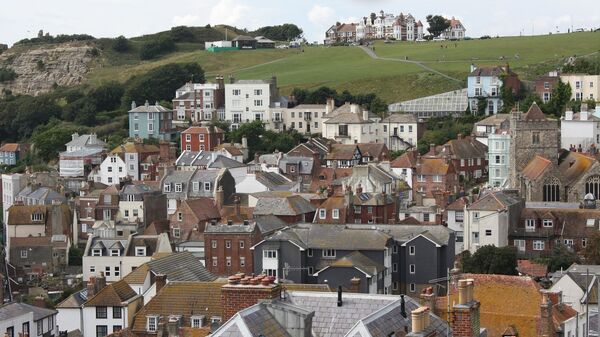UK Finance Minister Rishi Sunak is reportedly poised to temporarily scrap the stamp duty on most homes on Wednesday in a measure aimed at reinvigorating the housing market, that has been hard-hit by the coronavirus pandemic, reported the Daily Mail. The UK's stamp duty is a tax that is levied on single property purchases.
Whitehall sources are cited as suggesting that the Chancellor of the Exchequer was to reveal the move in his summer statement as part of a mini-budget designed to kickstart the economy.
Sunak is believed to be ready to raise the starting threshold for paying the stamp duty from £125,000 to at least £300,000, with further speculation that the figure might be elevated to as much as £500,000.
The reduction being considered would save a buyer £2,460 ($3,087) on a property worth the national average of £248,000 ($311,414).

First-time home buyers only pay the tax on the purchase price of the home less £300,000; it's suggested that this one-time deduction be raised to £500,000 potentially saving them an additional £10,000.
The rate of the stamp duty is currently progressive: two percent of the cost above £125,000, five percent of the cost above £250,000, ten percent of the cost above £925,000, and 12 percent of the cost above £1.5 million, with landlords and those buying second homes paying an additional three percent.
Property purchases below the newly-established level would not necessitate paying a stamp duty, offering respite to buyers who are cautious about investing in a home in the wake of the coronavirus crisis that brought with it massive unemployment, wage cuts, business failures, and job uncertainty.
The measure is anticipated to boost the property market, which has suffered a slump due to the COVID-19 lockdown. According to the Halifax House Price Index, house prices in the UK have fallen for four months in a row.
While the details of Sunak's plan will be revealed on Wednesday, it was reportedly unclear whether the exemption would apply to all properties or restricted to the residential sector or so-called “affordable homes”.
The developments comes as earlier leaked reports about the Chancellor's plans had suggested the government was considering announcing the stamp duty holiday in the main budget this autumn, prompting economists and property experts to voice concerns that the delay could freeze the housing market.
Experts have argued that home buyers would be likely to put their investment plans on hold until autumn to avoid a soaring tax bill.
‘Wider Economic Recovery’
Treasury officials are cited as hoping that the tax cuts that increase the threshold of the stamp duty could trigger a much wider economic recovery, with people potentially using the tax savings to invest in new homes.
Stuart Adam, of the Institute for Fiscal Studies, was quoted as saying that previous measures of this kind had demonstrated how temporary cuts in the stamp duty could offer an “effective fiscal stimulus” to the economy.
“If the holiday is explicitly temporary, then it can persuade people to bring forward moves that they might otherwise have delayed. If you get people buying houses again, then it can pull a lot of other economic activity with it, such as spending on refurbishment, curtains, carpets, furniture, DIY and so on,” said the expert.
Some critics have voiced doubts regarding the timing of the measures, citing limited data pertaining to the state of the housing market, which resumed trading in mid-May after the lockdown.
Former chancellor Philip Hammond weighed in on the debate, pointing out that while it might bring forward economic activity, a temporary cut in the stamp duty would not be likely to increase it overall.
There has not been any official comment from the UK Treasury on the impact of higher stamp duty exemptions.
The Stamp Duty Land Tax was introduced in its current form in December 2013, and applied to people who buy a property or land over a certain price in England and Northern Ireland.
The amount hinges on where you reside in the UK, the price of the property and whether you're a first-time buyer.
In England and Northern Ireland, the stamp duty is paid on land or property sold for £125,000 or more; the rates are somewhat different in Scotland and Wales.


